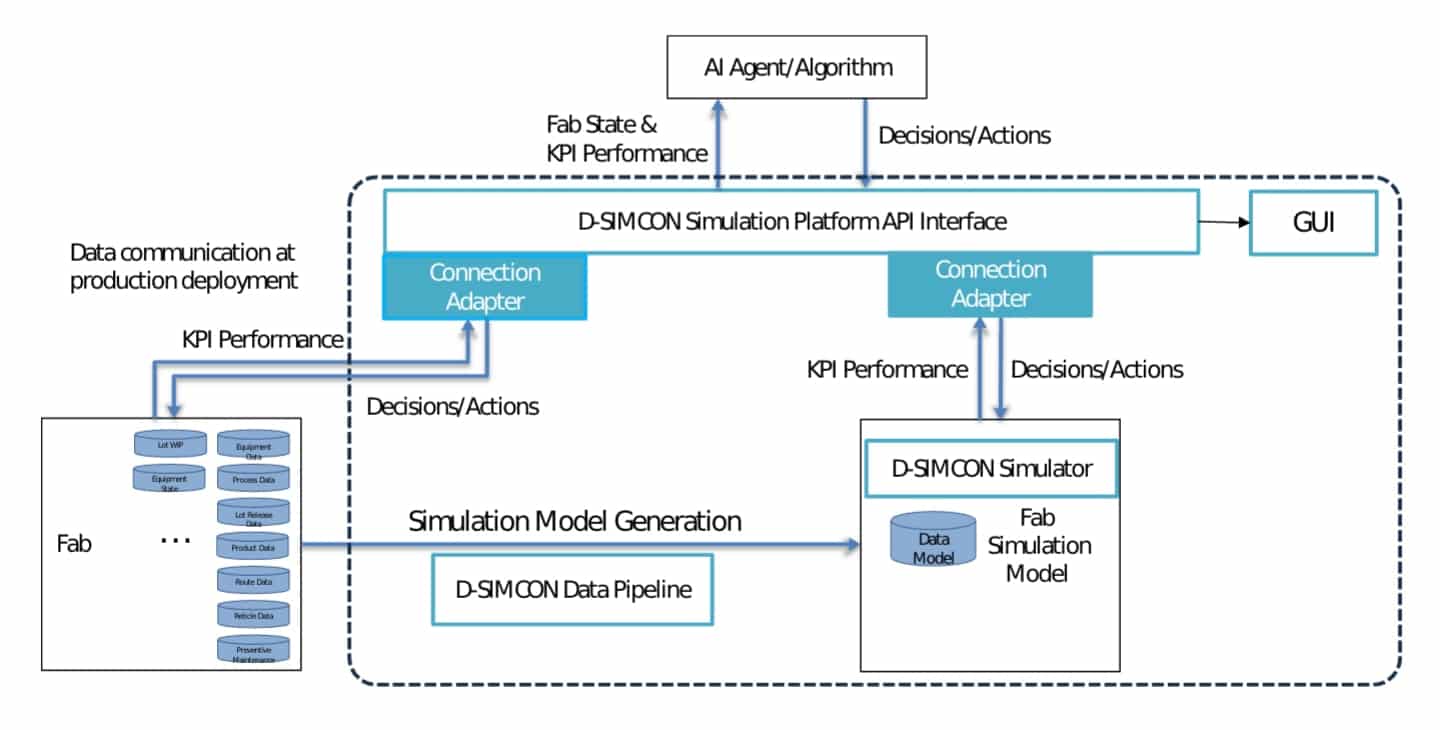- Home
- >
- D-SIMCON
- >
- D-SIMCON AI Evaluation Platform
D-SIMCON AI Evaluation Platform
Simulation-Based Solution for the Training of AI Agents for Capacity and WIP Flow Optimisation in Semiconductor Manufacturing
CHALLENGES
- AI techniques such as Reinforcement Learning have been on the rise also for operations planning and WIP flow management in Semiconductor Manufacturing.
- Training of RL agents just with historical data is of limited value because a fab evolves over time in terms of product mix, tool mix and many other settings.
Solution
D-SIMCON AI Training and Evaluation Platform is a simulation-enabled solution for training of Reinforcement-Learning enabled agents for optimisation of capacity planning and WIP flow in Semiconductor Manufacturing. It can also be used to evaluate an agent’s (or any kind of scheduling system’s) performance and to manage the simulation model repository built up over time.
Training is carried out using a simulation model of a fab’s future WIP flow scenarios which are generated based on the fab data such as process flow, equipment information and dedication configuration. Other modelling elements are parameterised using historical data from the (respective) underlying actual fab to extract statistical properties such as equipment failure distributions. The wafer release into the simulator is the same as the planning data for the real fab. The model is populated through a scalable, automated data farming approach.
The bidirectional communication between an Intelligent Agent and the D-SIMCON simulation model through an API interface comprises retrieval of data about the current fab situation, instructions to be sent to the simulator for simulations to be run (i.e. actions to be considered) as well as results about KPI performance of a particular simulation scenario to be sent back to the agent.

Differentiators
The simulation platform is powered by the well-established and proven D-SIMCON Dynamic Capacity and Material Flow Performance (DCMF) Planner and comes with a number of special features:
- Adjustable KPI measurement time periods which can be fixed/variable.
- Roll-back of simulation to particular points of times of where actions are carried out / settings change with separate collection of statistics.
- New types of actions / decision variables can be added.
- Model simplifications (for selected Equipment Groups) can be done easily.
- Concurrent execution of different scenarios on Cluster/Cloud.
- Simulations can be run on multiple operation systems.
